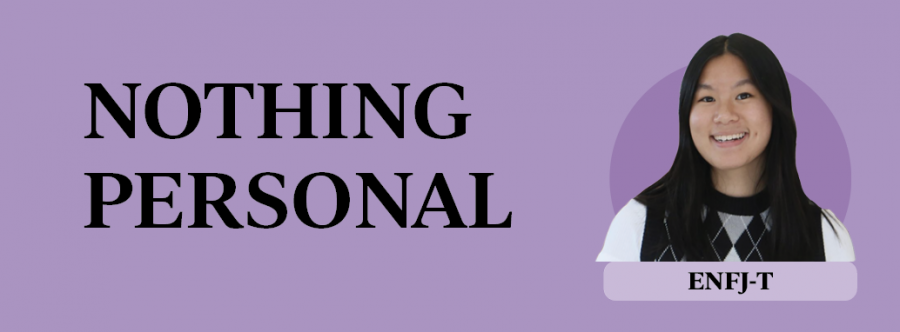In honor of the 59th anniversary of the infamous Myers-Briggs personality test, I decided to retake the test for the first time in a few years. Although my personality description made it seem to be a legit in-depth analysis of me, I couldn’t help but laugh at how vague it really was—the descriptions could be used to describe anyone. And yet, while searching for the test, I stumbled upon a community of people who took the results extremely seriously. Some of them genuinely believed that a 10 minute test was able to diagnose all the nuances of their personality, whether it be their flaws, strengths or fears. On top of that, some of them would use it to determine what career paths they should pursue, a concept completely mind-boggling to me.
Don’t get me wrong, personality tests are fun; sometimes I too want to know what type of pizza I am (courtesy of Buzzfeed), and sometimes it can help people understand their identity a little more or verbalize it better, but in no way would I ever take it seriously enough that I would use it to determine my life choices. Yet, the Myers-Briggs test has been used as such. In fact, according to the Washington Post, the company makes $20 million a year selling more “in-depth” analyses to companies that use it to determine whether to hire someone. More shockingly, 200 federal agencies like the Central Intelligence Agency (CIA) rely on it to be able to determine whether someone is fit for the job. Who knew that a personality test could hold that much weight in someone’s life?
Despite its importance and frequent use in our life, the test is extremely flawed. First, the Myers-Briggs test is not even based on real science. The theory it is based on was developed in 1940 by Carl Jung, who explicitly warned to not use his theory of the 16 personalities as strict classifications for one’s identity. Later on, his theory was disproved to be an effective indicator of one’s personality by other psychologists, a clear red flag. But the issues with credentials don’t stop there—the creators of the test, Katherine Briggs and Isabel Myers, have no formal education in psychology, and yet they were still entrusted to make an entire test that is supposed to give accurate analyses of the complex personalities of millions of people. That alone should be enough to prove why the test is extremely overrated, but there are many more problems.
All of the answer choices within the Myers-Briggs test are false and limited binaries. All human characteristics lie in a spectrum; for example, no one is entirely an extrovert nor is anyone entirely an introvert, yet we all know that some may be more introverted than others. Yet the test doesn’t account for this. To answer all of the questions, you can only respond with “Agree” or “Disagree” even though those who choose the same answer may actually differ in the extremity of how much they agree or disagree. This lack of specificity makes it almost near impossible to truly analyze a person’s character.
But lastly, one of the biggest flaws of the test is that it’s extremely vulnerable to one’s mood. For example, after a fun hang out with my friends, I may be more inclined to actually say I’m more extroverted, but after a long day at school, I’d probably be more inclined to say I’m more introverted. That’s why a study conducted by Indiana University finds that 50% of people received a different result the second time they took the test, even when it was taken as short as five weeks later. We all know we don’t go through an entire personality reset within a month, change takes time.
All in all, it’s clear the test is inaccurate and arbitrary. So while I’m not stopping you from taking it for fun, let’s stop using this outdated test — which has close to zero scientific backing— to determine someone’s future and move on to something else.
The views in this column do not necessarily reflect the views of the HiLite staff. Reach Leah Tan at ltan@hilite.org
Click here to see more of Leah Tan’s work.

































![AI in films like "The Brutalist" is convenient, but shouldn’t take priority [opinion]](https://hilite.org/wp-content/uploads/2025/02/catherine-cover-1200x471.jpg)









































![Review: “The Immortal Soul Salvage Yard:” A criminally underrated poetry collection [MUSE]](https://hilite.org/wp-content/uploads/2025/03/71cju6TvqmL._AC_UF10001000_QL80_.jpg)
![Review: "Dog Man" is Unapologetically Chaotic [MUSE]](https://hilite.org/wp-content/uploads/2025/03/dogman-1200x700.jpg)
![Review: "Ne Zha 2": The WeChat family reunion I didn’t know I needed [MUSE]](https://hilite.org/wp-content/uploads/2025/03/unnamed-4.png)
![Review in Print: Maripaz Villar brings a delightfully unique style to the world of WEBTOON [MUSE]](https://hilite.org/wp-content/uploads/2023/12/maripazcover-1200x960.jpg)
![Review: “The Sword of Kaigen” is a masterpiece [MUSE]](https://hilite.org/wp-content/uploads/2023/11/Screenshot-2023-11-26-201051.png)
![Review: Gateron Oil Kings, great linear switches, okay price [MUSE]](https://hilite.org/wp-content/uploads/2023/11/Screenshot-2023-11-26-200553.png)
![Review: “A Haunting in Venice” is a significant improvement from other Agatha Christie adaptations [MUSE]](https://hilite.org/wp-content/uploads/2023/11/e7ee2938a6d422669771bce6d8088521.jpg)
![Review: A Thanksgiving story from elementary school, still just as interesting [MUSE]](https://hilite.org/wp-content/uploads/2023/11/Screenshot-2023-11-26-195514-987x1200.png)
![Review: "When I Fly Towards You", cute, uplifting youth drama [MUSE]](https://hilite.org/wp-content/uploads/2023/09/When-I-Fly-Towards-You-Chinese-drama.png)
![Postcards from Muse: Hawaii Travel Diary [MUSE]](https://hilite.org/wp-content/uploads/2023/09/My-project-1-1200x1200.jpg)
![Review: "Ladybug & Cat Noir: The Movie," departure from original show [MUSE]](https://hilite.org/wp-content/uploads/2023/09/Ladybug__Cat_Noir_-_The_Movie_poster.jpg)
![Review in Print: "Hidden Love" is the cute, uplifting drama everyone needs [MUSE]](https://hilite.org/wp-content/uploads/2023/09/hiddenlovecover-e1693597208225-1030x1200.png)
![Review in Print: "Heartstopper" is the heartwarming queer romance we all need [MUSE]](https://hilite.org/wp-content/uploads/2023/08/museheartstoppercover-1200x654.png)




